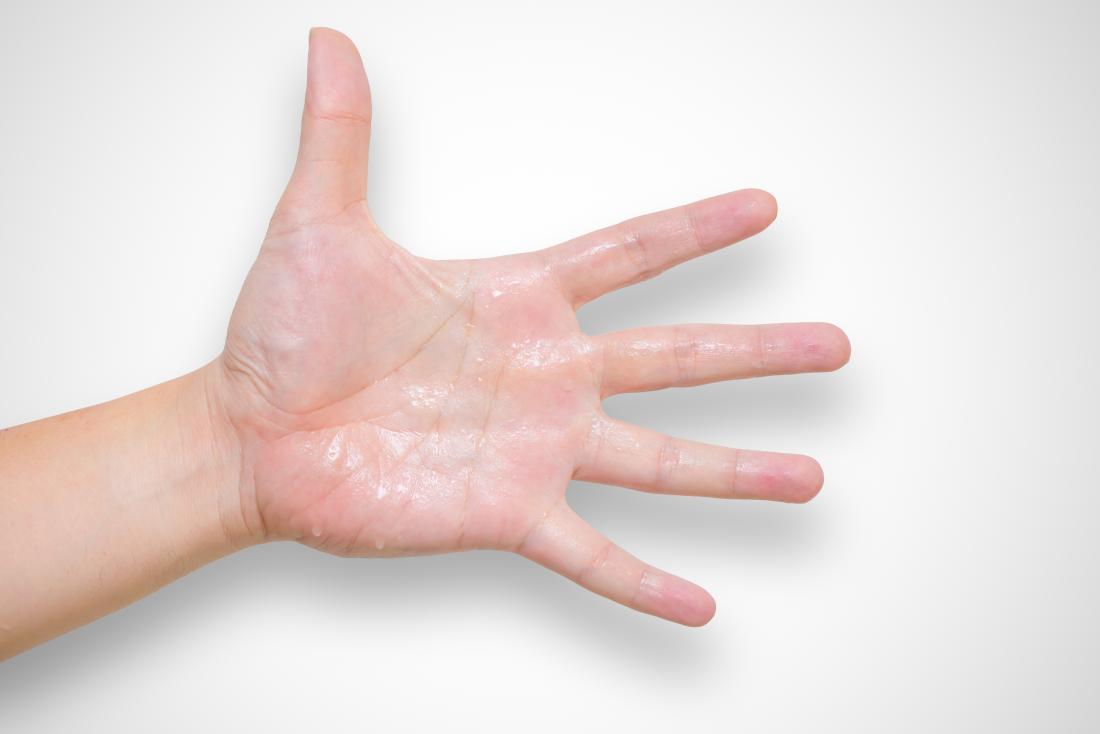Targeted Dermatology Treatments for Hyperhydrosis of Hands and Feet: Reliable Solutions
Targeted Dermatology Treatments for Hyperhydrosis of Hands and Feet: Reliable Solutions
Blog Article
Understanding the Source of Excessive Sweating and Its Effect on Daily Life
Excessive sweating, also called hyperhidrosis, is a condition that impacts a substantial part of the population, yet its hidden reasons and effects on day-to-day functioning continue to be rather enigmatic. While it is typically understood as a physiological response to control body temperature, the triggers for excessive sweating can vary extensively amongst people, encompassing not just physical factors yet emotional and additionally psychological elements. The impact of this condition expands past mere discomfort, frequently influencing social communications and overall high quality of life. By diving right into the origin of hyperhidrosis and discovering its diverse results, a deeper understanding of this prevalent problem can be acquired, dropping light on the intricacies that people coming to grips with extreme sweating navigate each day.
Physiology of Sweat Glands
The regulation of sweat production, a critical physical procedure, is primarily managed by the task of sweat glands dispersed across the human body. Sweat glands are categorized into two main types: eccrine and apocrine glands.
When the body temperature level rises, either due to physical task, heats, or emotional stress, the nervous system activates the gland to produce sweat. This sweat is made up mostly of water and electrolytes like salt and chloride. The procedure of sweat production is vital for preserving the body's interior temperature within a slim, optimum array, highlighting the crucial function gland play in human physiology.
Triggers for Excessive Sweating
In comprehending the source of too much sweating, it is critical to recognize the triggers that can bring about this physical action. Too much sweating, likewise known as hyperhidrosis, can be motivated by various aspects, both ecological and physiological. One common trigger is psychological tension or stress and anxiety, which can boost the body's sweat glands to produce even more sweat than is needed for cooling down. Physical effort, high temperatures, and spicy foods are likewise understood to activate extreme sweating in people vulnerable to this condition. Certain clinical conditions like diabetes, menopause, or hyperthyroidism can contribute to excessive sweating as well.
Moreover, medicines such as some antidepressants, opioids, and particular supplements can also function as triggers for hyperhidrosis. Understanding these triggers is necessary in managing excessive sweating successfully - Sweaty hands treatment. By determining and attending to the certain triggers that trigger too much sweating in a private, health care carriers can develop individualized treatment plans to relieve this condition and improve the individual's top quality of life
Medical Conditions Associated
Related to too much sweating are numerous medical problems that can exacerbate this physical reaction. One usual problem is hyperhidrosis, a condition identified by abnormally increased sweating that goes beyond the body's thermoregulatory needs. This can materialize in focal areas like the palms, soles, underarms, or face, impacting a person's browse around these guys lifestyle because of social shame and pain.
Moreover, endocrine conditions such as hyperthyroidism, diabetes mellitus, and menopausal hot flashes can additionally lead to extreme sweating. Hyperthyroidism creates an overflow of thyroid hormones, accelerating metabolic rate and activating sweating. Diabetes can generate sweating episodes, especially during hypoglycemic episodes when blood glucose levels drop as well low. Menopausal warm flashes, attributed to hormonal changes throughout menopause, can trigger abrupt and intense sweating, typically accompanied by flushing and heart palpitations.
Additionally, infections like tuberculosis, endocarditis, and hiv have actually been associated with night sweats, a typical signs and symptom recognized to interfere with sleep and impact general well-being. These medical problems highlight the diverse variety of underlying factors that can add to extreme sweating, demanding thorough examination and management by healthcare experts.
Psychological and Psychological Factors

Effect On Social Communications
Excessive sweating can have profound results on an individual's ability to engage pleasantly in social communications. The visible indications of sweat spots or wet patches on apparel can bring about embarrassment and self-consciousness, triggering people to take out from social situations. This withdrawal can influence relationships, limitation social tasks, and prevent individual and specialist development.

Moreover, the stress and anxiety and self-worth problems coming from excessive sweating can affect interaction and social skills. People might have a hard time to concentrate on discussions, take part in team activities, or express themselves with confidence. This can lead to sensations of seclusion and loneliness, as social links check my site come to be testing to keep.
Final Thought

While it is frequently understood as a physiological feedback to manage body temperature, the triggers for excessive sweating can differ commonly among people, including not just physical factors yet likewise emotional and psychological elements. By delving right into the root creates of hyperhidrosis and discovering its multifaceted results, a deeper understanding of this pervasive concern can be gotten, losing light on the complexities that individuals grappling with excessive sweating browse on a day-to-day basis.
Physical exertion, high temperature levels, and spicy foods are also recognized to activate too much sweating in people susceptible to this problem. By recognizing and attending to the certain triggers that trigger too much sweating in a specific, healthcare providers can create tailored therapy plans to alleviate this condition and boost the individual's top quality of life.
Excessive sweating can have extensive results on a person's ability to engage comfortably in social communications.
Report this page